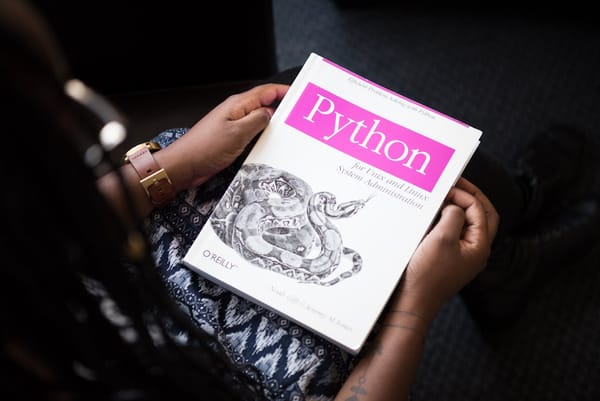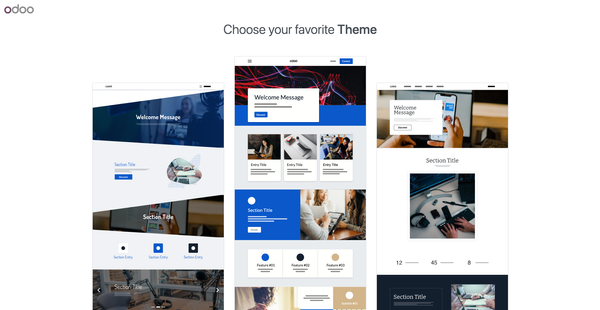Basic Knowledge to Become a Python Developer - For Beginners
This guide is the very first step to pursuing your career as a Python developer. Let’s learn what you need.
Table of Content
Being a software engineer is one of the most sought-after careers in the 4.0 revolution and the era of digital transformation. Developers are playing a crucial role in shaping the future of technology. For that reason, these IT professionals have the privilege to pick and choose a wider range of job opportunities as well as career paths, are constantly challenged to learn and sharpen their skills, and also get well paid for it. U.S. News indicates that the median income for software developers was $120,730 in 2021. Those in the top 25% of earners brought home $151,960 in that same year, whereas the ones in the lower 25% income bracket earned $90,870.
Becoming a Python developer is an excellent entry point into this field, as it is one of the most prevalent and versatile programming languages used today. In this guide, we will provide you with the essential knowledge to get started on your journey to become a Python developer.
What Is Python?
Python is an interpreted, high-level programming language that was created by Guido van Rossum in 1991. It is designed to be simple, easy-to-learn, yet powerful, with a strong emphasis on code readability and efficiency. Python gained its name from Guido's love for the popular British comedy series Monty Python's Flying Circus.
The language has been widely adopted in various fields, such as web development, data science, artificial intelligence, machine learning, scientific computing, and more. Its versatility and user-friendly syntax have made it a favorite among developers, both beginners and experts alike.
What Does a Python Developer Actually Do? - (Job Description)
A Python developer is a software engineer who specializes in using the Python programming language to build, test, and maintain software applications. Their responsibilities may alter depending on the specific job role or industry they are working in. Some common tasks that a Python developer may perform include:
- Writing clean and efficient code using Python
- Debugging and troubleshooting code errors
- Collaborating with other team members to design and develop new software features
- Conducting code reviews and testing to ensure the quality of the codebase
- Integrating data storage solutions such as databases or APIs into applications
- Creating scripts for automating repetitive tasks
- Optimizing applications for performance and scalability
- Keeping up with new developments and updates in the Python language.
The Skills You Need to Become a Python Developer
To excel as a Python developer, it's essential to have a strong grasp of programming fundamentals and certain specific skills. Here are the key competencies to master:
Understanding Programming Basics
It's vital to know the basic concepts of computer science, such as control structures, data types, variables, functions, and algorithms. Additionally, familiarity with object-oriented programming is important, given Python's object-oriented nature.
Proficiency in Python Libraries
Python boasts a rich set of libraries that can expedite the development process. Gaining expertise in widely used libraries like NumPy for numerical computing, Pandas and Matplotlib for data analysis, and Flask and Django for web development is crucial.
Grasp of Web Development Concepts
Python's use is widespread in web development, making it beneficial to understand related concepts like HTML, CSS, and JavaScript. Experience with frameworks such as Flask or Django for building applications is also advantageous.
Knowledge of Data Structures and Algorithms
Mastering data structures (like lists, dictionaries, and sets) and algorithms (like sorting and searching) is key to writing efficient code and resolving complex problems.
Database Management Skills
Many applications necessitate using databases to store and retrieve data. Knowledge of database management systems (DBMS), along with SQL and NoSQL, is invaluable for creating robust applications.
Problem-Solving and Analytical Abilities
As a developer, you'll frequently encounter challenges requiring critical thinking and problem-solving skills. The ability to logically approach problems and break them down into smaller, manageable tasks is vital for success in this field.
What Tools Do Python Developers Use?
Python developers use a variety of tools to streamline and enhance their coding experience. Here are some of the essential tools that they often rely on:
- Integrated Development Environments (IDEs): PyCharm and Jupyter Notebook are two popular IDEs among Python developers. These platforms provide a comprehensive environment for writing, testing, and debugging code.
- Package Managers: Pip is a standard package manager for Python. It helps developers install and manage software packages written in Python.
- Libraries and Frameworks: Libraries like SciPy, Scikit-learn, Keras, and Selenium provide pre-written, reusable pieces of code that save developers time and effort. Frameworks like Django and Flask are also widely used for web development.
- Text Editors: Sublime Text and Visual Studio Code are popular text editors that are highly customizable and offer features like syntax highlighting and advanced editing tools.
- Web Development Tools: Tools like Selenium aid in automating web browsers for testing web applications.
- Data Analysis Tools: Tools such as NumPy, Pandas, and Matplotlib are indispensable for data analysis tasks.
- Database Management Tools: Knowledge of SQL and NoSQL databases, as well as database management systems (DBMS), is crucial for handling data storage and retrieval in applications.

How to Get Started with Your Python Developer Career
Understanding the intricacies of becoming a Python developer is the first step on your journey. Here's how you can kickstart your Python development career:
Master the Basics
Initiate your learning with the core concepts of Python programming language, such as syntax, data types, control structures, functions, and so forth. There's a wealth of free online resources and tutorials to guide you through this phase.
Engage in Hands-on Coding
Learning by doing is the most effective way. Start honing your skills through small projects and gradually undertake more complex ones. This approach will familiarize you with Python language and its libraries while enhancing your problem-solving abilities.
Participate in Online Communities
Online platforms like Stack Overflow or GitHub are ideal for networking with fellow Python developers. They provide a space to ask questions, share knowledge, and receive feedback on your code.
Enroll in Online Courses
Structured learning paths for Python development are readily available through numerous online courses. High-rated platforms include Coursera, Udemy, and Codecademy.
Utilize Official Documentation
Python's official documentation is an indispensable tool for understanding the language and its libraries. It should be your go-to source whenever you need further clarification or encounter coding hurdles.
Curate a Portfolio
As you accumulate experience and knowledge, start compiling a portfolio of your projects. This serves as a testament to your skills and provides tangible proof of your capabilities to prospective employers.











